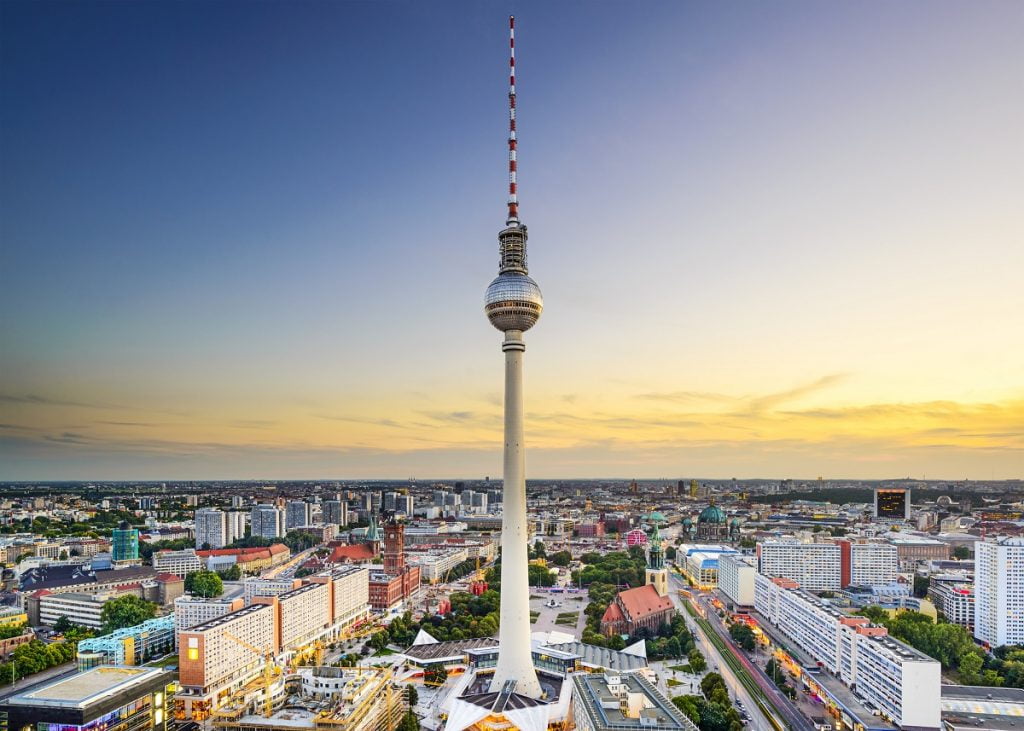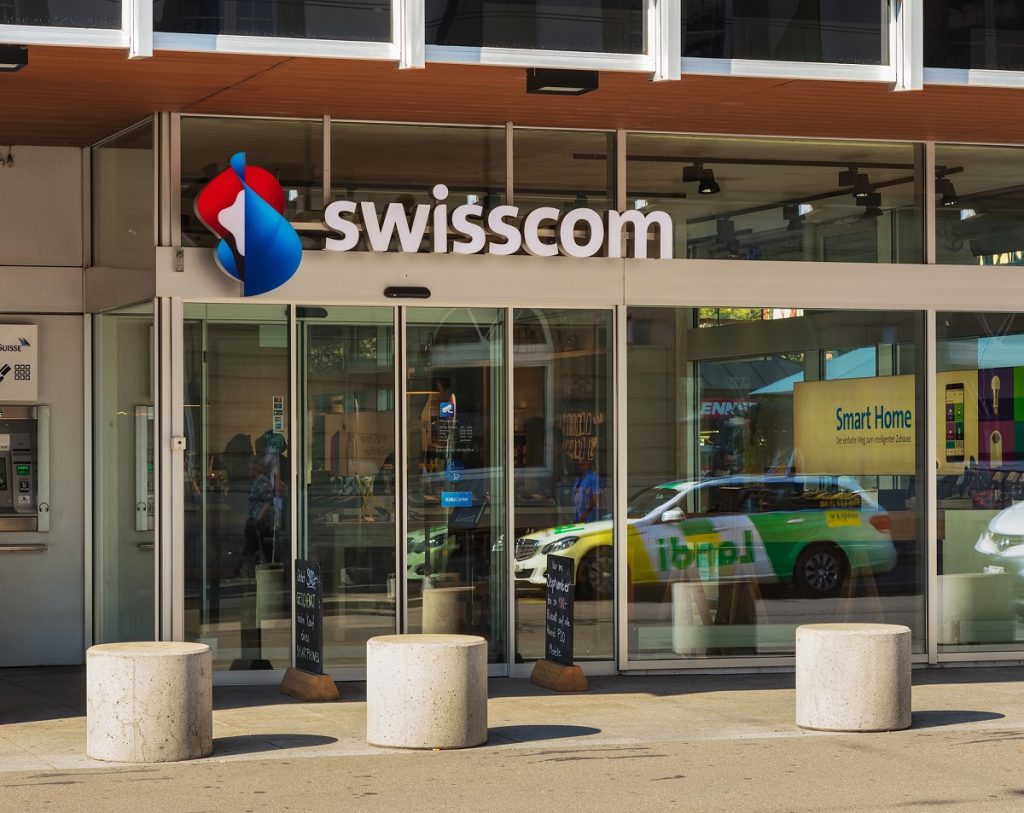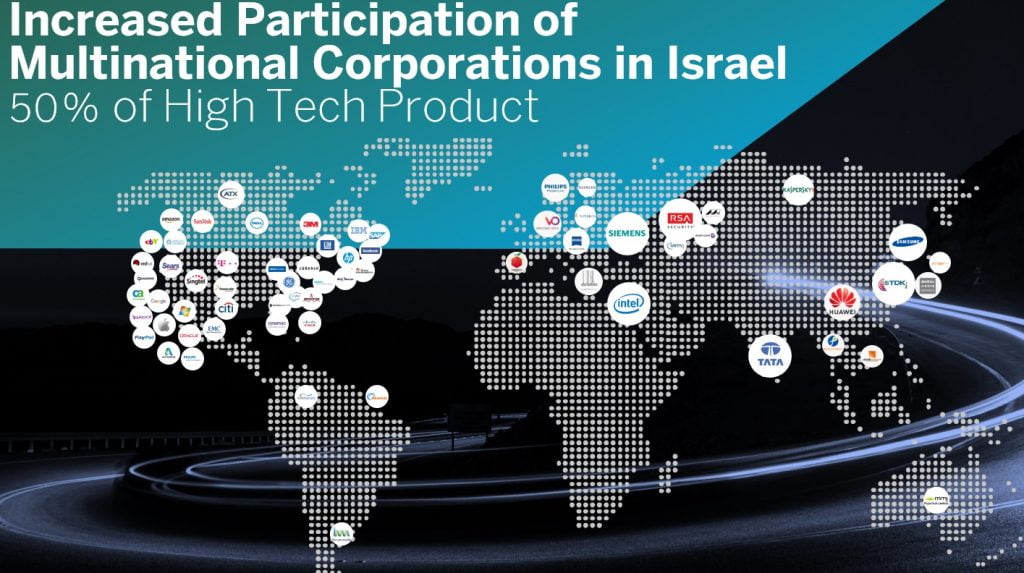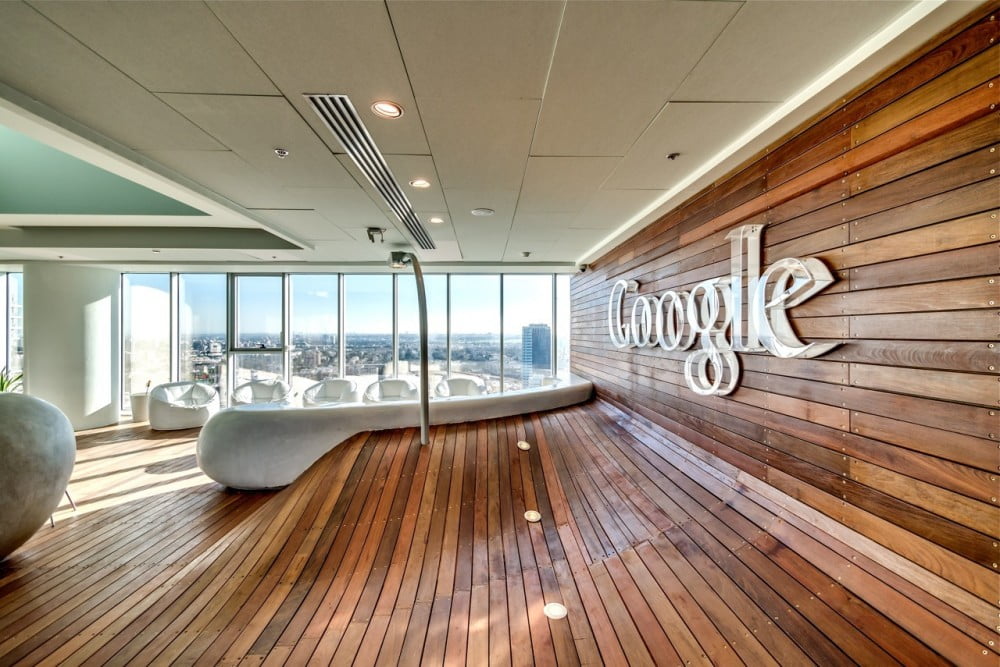Israel’s “special relationship” with the United States, the world’s most powerful economy and Israel’s largest trading partner, has made it a top destination for Israeli startups and companies seeking to take their tech global.
According to Start-Up Nation Central’s Finder database which tracks Israel’s tech ecosystem, there are over 1,850 Israeli companies with at least one US address, out of a total of more than 6,200 startups and firms. And there are significant – and growing – Israeli high-tech communities in Silicon Valley and New York primarily.
American firms and multinationals also make up the majority of foreign investors in Israeli companies and buyers of Israeli startups. A recent report by the IVC Research Center noted that, in 2018, 78 percent of buyers of Israeli companies were American, up from 43 percent in 2017. America’s biggest multinationals – Microsoft, Google, Facebook, Amazon – all have Israel-based operations.
Europe, meanwhile, is Israel’s second-largest trading partner, but it runs a number of government-led programs aimed at collaboration. Its peerless Horizon 2020 initiative, a research and innovation project with nearly €80 billion ($90 million) of funding available over seven years (2014-2020), has seen over €700 million ($791 million) in grants handed to Israeli researchers and entrepreneurs so far, according to Ruth Friedel, European Programs Manager at ISERD – The Israel-Europe R&D Directorate.
“In this platform, Israel is quite active, through things like consortiums, and academia, and our job is to promote and maximize Israeli participation,” Friedel tells NoCamels.
And Europe appears to be hungry for more Israeli innovation.
Next week, Israel will host European representatives of top tech accelerators and companies across the continent for the fifth installment of the Europe Days conference, which serves as a platform to leverage the huge business potential between Israel and Germany, Switzerland, and Austria.
Over €300 million ($335 million) in funding opportunities will be on the table for the event, gathering European companies and investors, and some 200 Israeli entrepreneurs.
Gilli Cegla, the conference founder, an entrepreneur and investor specializing in European markets, tells NoCamels the goal “is to bring more awareness and create more business between Israeli and European tech ecosystems.”

Deposit Photos
” width=”1024″ height=”731″> Berlin city skyline at Alexanderplatz. Deposit Photos“By default, Israeli startups go to the US and I think they’re missing an opportunity that is around the corner. If I fly between three-and-a-half and five hours [from Israel], I can tap into very wealthy and established economies,” Cegla says.
The conference combines talks, round tables, 1:1 meetings and other networking opportunities, all aimed at maximizing business between the participants. Companies set to attend the March 19 event include Metro, a large European retailer, hub:raum, the tech incubator by German telecommunications company Deutsche Telekom, Swiss telecoms provider Swisscom, and Wayra by Telefonica. They will present funding opportunities as well as various business opportunities to Israeli startups.
From previous conferences, Cegla says the event has proven a 15 percent conversion rate when it comes to Israeli startups finding European collaborations.
After last year’s event, Israel’s Texel, which provides a white-label VR provisioning solution for broadcasters or content owners, signed a collaboration deal with European sports channel Sport1.
Cegla tells NoCamels that there are three tiers of firms from the business arena looking to Israel for innovation: the big corporations, the small and medium-sized enterprises (SMEs), and the accelerators.
“The very big corporations have innovation but always need a special sauce in certain segments,” says Cegla, who has been working the Israel-Europe line for 16 years.
“The SMEs represent 95 percent of all economy in the EU. Their turnover ranges from €20-100 million annually. They do not have R&D departments and they need innovation to evolve, they cannot do it alone. For this, Israeli startups and innovation are a great solution,” he tells NoCamels. “To sustain their momentum, the SMEs need the next thing and this is why they come here. We’re a good investment.”
Sign up for our free weekly newsletter
SubscribeIndeed, European mid-size companies are looking to improve all verticals. At the Europe Days conference, FinTech, IoT, Mobile, Media, Retail, Cyber, Web, Sportech, and Industry 4.0 will be in focus.
Earlier this month, a €2.45 million SME Instrument grant from the European Commission’s European Innovation Council (EIC) was given to Tel Aviv-based machine vision startup VAYAVISION. The Israeli company said it planned to use the funding to bring its perception software to the European market and establish a local presence there.

The entrance to a Swisscom store in the town of Winterthur, Switzerland. Deposit Photos
Cegla says there will also be representatives from seven European accelerators, the last tier, at the conference.
“We have seven accelerators of huge companies coming to Tel Aviv to recruit Israelis to their programs. Personally, I’m amazed,” says Cegla.
“The Israeli startup quality is on average higher than the ones in their local market. Also, many of the accelerators are trying to innovate in new areas and in Israel, we’re more bold and experimental and earlier to adopt and try out new things,” he says
There are 18 speakers flying into Tel Aviv for the conference, including: Sylvia Dudek, program director of the accelerator programs of Metro; Pascal Damm, COO Digital of Sport1; Eliana Zamprogna, CTO, M-Industry by Migros, Switzerland’s largest retailer; Christian Lindener, CEO Germany of Wayra by Telefonica; Inga Land, managing director of :agile by E.ON; and Michael Amtmann, head of new business at Mueller Media.
In addition, European governmental bodies such as Germany Trade and Invest, the economic development agency of Germany, and city representatives from Berlin, Cologne, and Vienna will participate, offering a variety of support programs to Israeli entrepreneurs interested in doing business in Europe.
Since Cegla began the conferences five years ago, he has seen an uptick in the number of accelerators interested in coming from Europe to Tel Aviv, more corporate firms establishing bases in Israel, as well as more SMEs seeking to work with blue-and-white startups, “understanding they need to move forward, by opening up to non-European startups.”
The trend has also been spotted by the Israel Innovation Authority, whose CEO Aharon Aharon has noted in official presentations a marked increase in activity in Israel by European multinationals, including Swiss multinational pharmaceutical Novartis, Swiss multinational Lonza Pharma & Biotech, automotive giants Daimler and BMW, and food company Nestle, among many others.

A slide provided by the Israeli Innovation Authority showing multinational activity in Israel. Courtesy
Cegla says the conference is part of the Europe Days platform, which aims to “connect between the Israeli entrepreneurs to the ‘technology scene’ in the various European countries in order to leverage the tremendous business potential for cooperation.”
The potential is indeed great. According to a new report by the Start-Up Nation Central organization, financing rounds to support Israeli startups and high tech firms is on the rise, with Israeli startups and high-tech companies raising $6 billion in 2018, 15 percent more than in 2017.
And while the Europeans are more structured, Cegla says they “like the way Israelis approach things with different thinking.”
To make the conference “homey” to both the Israelis and Europeans, organizers have noted that the conference will start on time (it’s a European conference, as well, after all) and have set up a European-Israeli fusion menu that kicks the day off with strudel and coffee (as opposed to rugelach), and continues with German sausages, German beer, falafel and pretzels.
The presence of food can have a positive effect on business deals, after all. And, in this case, both the Europeans and Israelis should be in good spirits.
Viva Sarah Press is a journalist and speaker. She writes and talks about the creativity and innovation taking place in Israel and beyond. www.vivaspress.com
Related posts

Editors’ & Readers’ Choice: 10 Favorite NoCamels Articles

Forward Facing: What Does The Future Hold For Israeli High-Tech?

Impact Innovation: Israeli Startups That Could Shape Our Future





Facebook comments